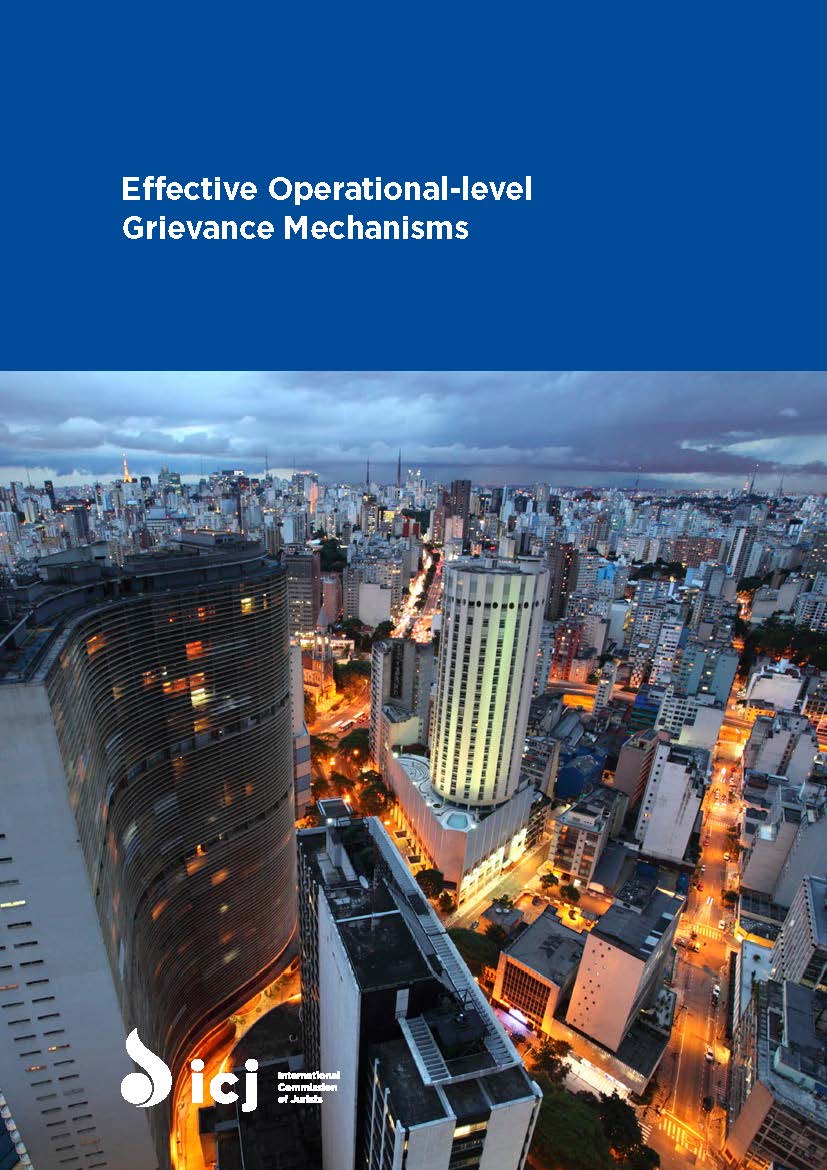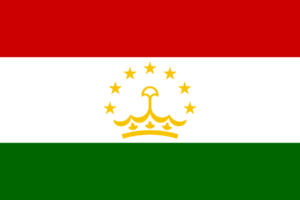At the launch of a report on companies’ practices to address complaints relating to their negative impacts on human rights, the ICJ said that many companies have failed to establish and implement effective operational-level grievance mechanisms (OGMs).
In the report Effective Operational-level Grievance Mechanisms, the ICJ emphasized that in respect of most companies, information about available OGMs and their performance is insufficient.
OGMs are an important element of a human rights protective framework in the context of activities of businesses.
The ICJ proposes a set of performance standards to serve as a basic framework for the establishment of OGMS and the assessment of their effectiveness.
Marco Sassoli, professor at the University of Geneva, ICJ Commissioner and member of the panel that produced the report, said: “In practice, most grievance mechanisms used by companies to redress abuses need major improvements in all respects. These performance standards can help them to operate concrete changes in their practices and policies, in particular, to work together with their local stakeholders.”
The ICJ report is the result of more than two years of empirical study by legal and human rights experts and practitioners, based in significant part on field visits and interviews with community leaders, workers and company officials of companies such as Acacias’ North Mara Gold Mining in Tanzania, El Cerrejon and Telefonica in Colombia, and Adidas’ suppliers in Indonesia.
The study was assisted by a high-level panel comprising ICJ Commissioners Ian Binnie, Marco Sassoli, Alejandro Salinas, Sheila Keetharuth, and John O‘Meally. There were more of 20 experienced practitioners who also contributed to the process and final report.
The UN Guiding Principles on business and human rights affirm that as part of their responsibility to remedy human rights abuses, “business enterprises should establish or participate in effective operational-level grievance mechanisms for individuals and communities who may be adversely impacted.”
The ICJ report recommends that community and stakeholder participation be enhanced in the design and operation of OGM, privileging collaborative approaches of co-design and co-implementation and the use of community-driven OGM when these exist.
Citing another key recommendation, Carlos Lopez, Senior Legal adviser at the ICJ, said that “the quantity and quality of information that companies disclose regarding their OGMs and their performance is currently quite limited. There is a great need to improve disclosure requirements and practices in this regard to enable independent monitoring.”
The ICJ intends to call on international organizations, companies, investors, civil society groups, and regulators to use the findings of the report in improving the design, development and reporting of operational-level grievance mechanisms.
International standards such as the UN Guiding Principles on Business and Human Rights recommend that grievance mechanisms operate on the basis of dialogue as a means to resolve disputes. The ICJ study found that “There are significant shortcomings in the way certain OGMs operate which in many instances exacerbate the existing imbalance of power between the parties to the dispute.”
In many cases, these mechanisms are not impartial and under the control of the company and there needed to be much enhanced participation of the stakeholders.
The report also found that “because the practice of employing contractors or using large webs of suppliers is common in certain industry sectors, many human rights abuses occur in those contexts and companies should not leave them unattended.”
Other key recommendations included in the report call contracting or buying companies to “incorporate requirements regarding OGMs in their contracting practices with contractors or/ and suppliers to ensure rights holders potentially affected by the actions of these contractors and suppliers have an available remedial mechanism.”
Because the practice of obliging community groups to relinquish their legal rights to access courts as condition to receive redress from a company is still pervasive, the ICJ stresses that these mechanisms “are not the most appropriate tool to negotiate or conclude these agreements.”
Also, when dealing with serious matters, companies should be mindful that “facts of potential criminal nature should be reported to authorities without preventing the company taking appropriate internal action, including safeguarding privacy and evidence and where appropriate providing compensation to victims.”
The role of civil society groups of all kinds, including trade unions and NGOs is crucial to the effective operation of grievance mechanisms.
The report also recommends that “NGOs, other civil society groups and trade unions [can] play an important role in the monitoring of the performance of the OGM and in supporting grievants through the process. To this end, companies should respect and promote their free organization and action and engage actively with them.”
States have an important role in providing incentives or sanctions to encourage companies to establish OGMs and States that have not done so should enact legislation and administrative and other measures to this end.
Download
Universal-Grievance Mechanisms-Publications-Reports-Thematic reports-2019-ENG (Full report in PDF)
Universal Proposed performance standards-Publications-2019-ENG (Proposed performance standards, in PDF)





